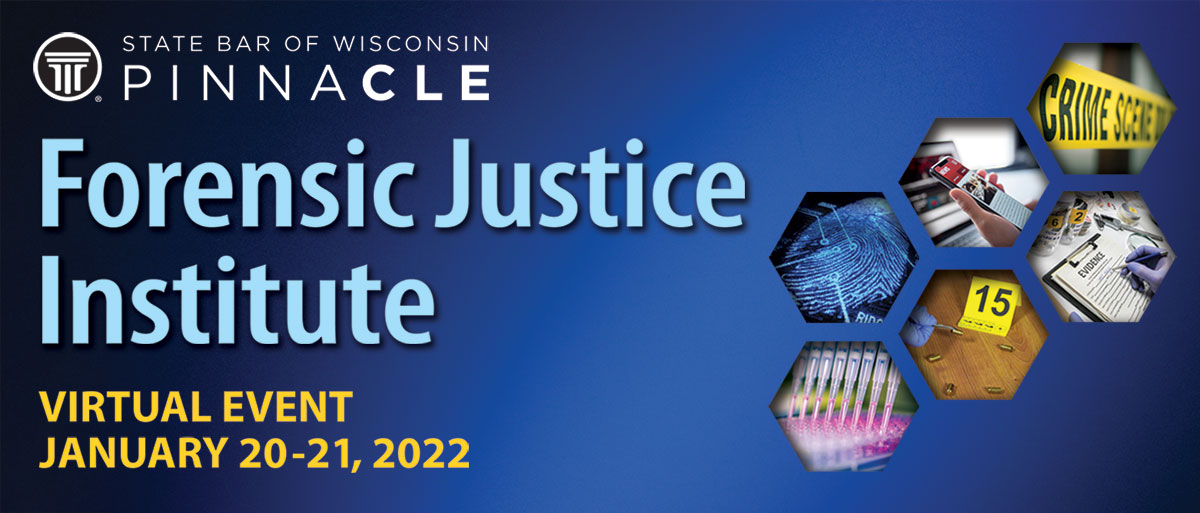Dec. 15, 2021 – When Janis Puracal’s brother was convicted in Honduras on bogus drug trafficking charges, she was a newbie lawyer working in civil litigation. She had no criminal law experience and didn’t know much about forensic evidence.
That all changed when Puracal set out to free her brother. It took Puracal nearly two years, and forced her to pull together an international team of lawyers, experts, and diplomats. She’ll speak about her experience and challenging firearm evidence at the upcoming
Forensic Justice Institute, Jan. 20-21, 2022, a virtual event co-sponsored by the
Center for Integrity in Forensic Sciences and State Bar of Wisconsin PINNACLE®.
After gaining her brother’s release, Puracal began working to reverse wrongful convictions in Oregon. When she challenged the science behind some types of forensic evidence, Puracal said she often ran into a brick wall.
“I would come into the courtroom and try and argue about forensics being unreliable, and I’d have so many judges give me this look or explicitly tell me that they had been seeing this stuff for decades, ‘So don’t come in here and tell me that I’ve been doing it wrong,’” said Puracal, an adjunct faculty member at Lewis and Clark Law School.
That experience inspired her to found the
Forensic Justice Project, a nonprofit that helps change the way courts use forensic science in criminal cases.
According to Puracal, the science behind ballistics evidence has remained unchanged for decades. “There have been advances in other areas, but the science of how we compare bullet casings has never changed. That just doesn’t make sense,” she said.

Advancements in technology and testing have created an explosion of new resources for investigators, prosecutors, and defense counsel. But, misapplication and misunderstanding of those advancements can lead to devastating outcomes in the criminal justice system. That, along with new scrutiny of sciences that have been used in courtrooms for many years have raised questions that cannot be ignored. Designed with legal professionals in mind, the
Forensic Justice Institute is a premier virtual event that puts the scientific evidence used in court under the microscope.
Together with the Center for Integrity in Forensic Sciences (CIFS), we've gathered renowned experts in forensics and nationally known speakers to present an unbiased look at the current scientific methods and results often submitted as evidence. Understand the reliability of the methods utilized so you can ensure your next criminal case contains science facts – not science fiction, and improves the use of forensic science in the criminal justice system.
Topics covered will include:
- Firearm analysis
- DNA analysis
- Digital forensics
- Forensic bias in interrogations
- Crime lab trends
- And more!
The Forensic Justice Institute will be submitted to the Wisconsin Board of Bar Examiners for up to 11.5 CLE and 1.5 EPR credits. It has been approved for 3.5 judicial education credits by the Wisconsin Office of Judicial Education.
Register at
forensicjusticeinstitute.org
